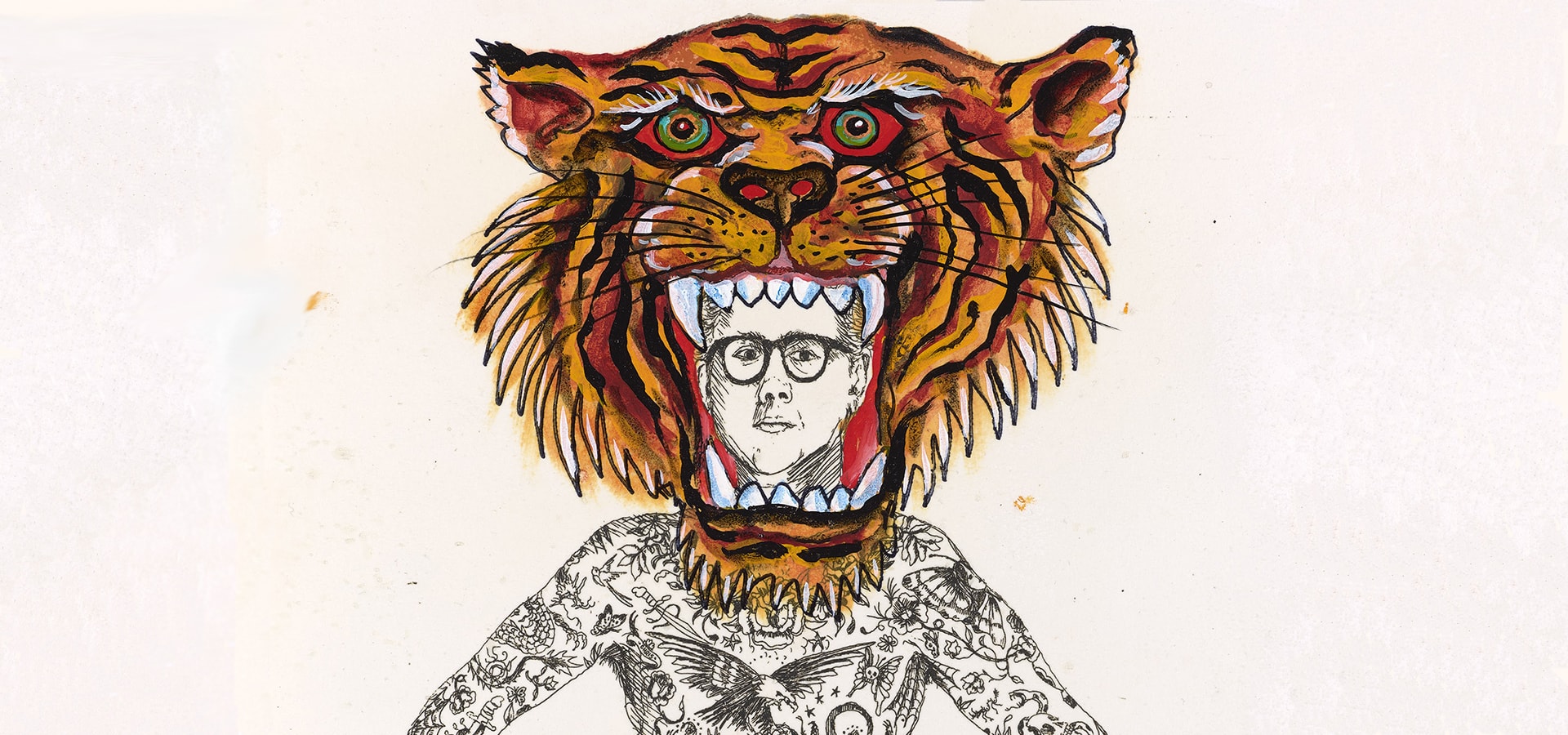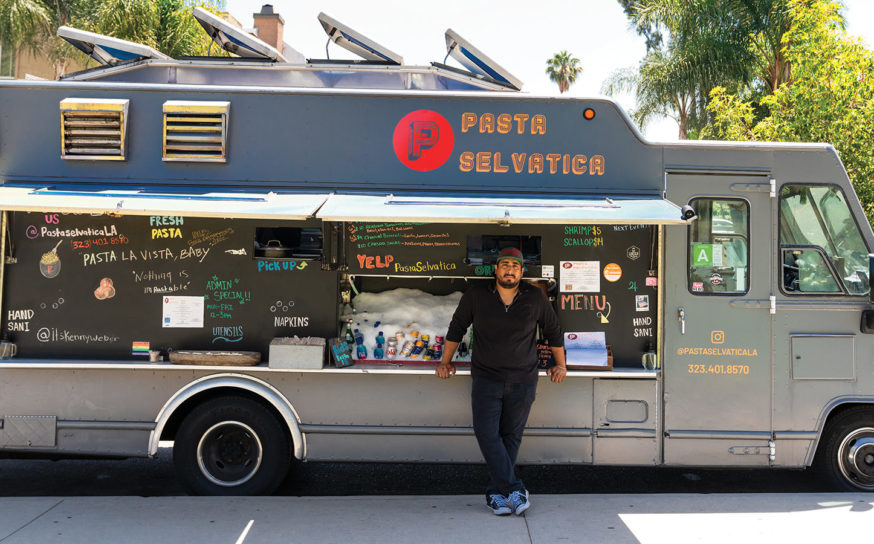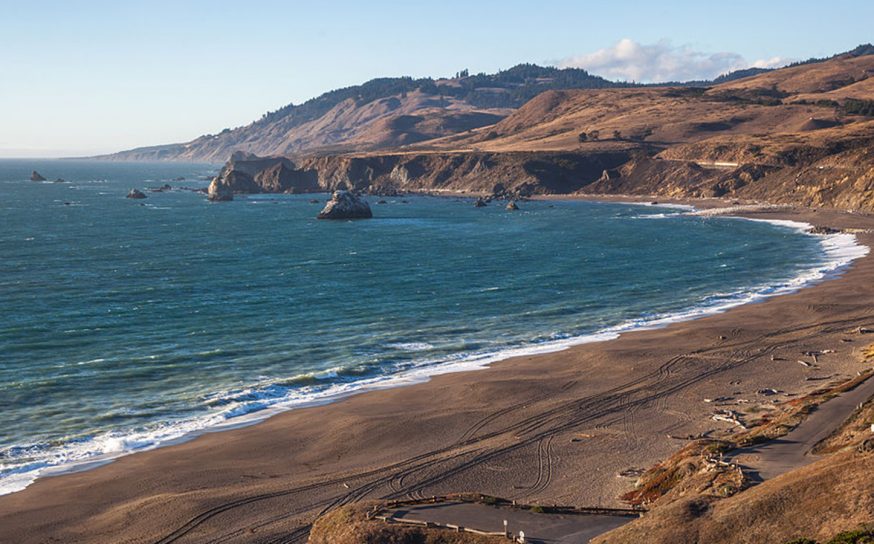SF’s de Young Presents the First Museum Retrospective of California Tattoo Artist Ed Hardy
Ed Hardy: Deeper than Skin will feature more than 300 objects, paintings and sketches.
-
CategoryArts + Culture, Visual Art
Growing up in Southern California, Ed Hardy was fascinated by the tattoos that he observed on the fathers of his neighborhood friends (mostly servicemen who had served in World War II). During this time Hardy haunted the tattoo parlors on Long Beach Pike, where he learned to draw tattoo designs for his “kiddie tattoo shop.” As a printmaking student at the San Francisco Art Institute in the mid-1960s, Hardy began to study the intricacies of prints by artists such as Dürer, Rembrandt and Goya at the Legion of Honor’s Achenbach Foundation for the Graphic Arts, the department responsible for the Fine Arts Museums’ collection of more than 115,000 works on paper. At the Achenbach he mined for inspiration for his own work.
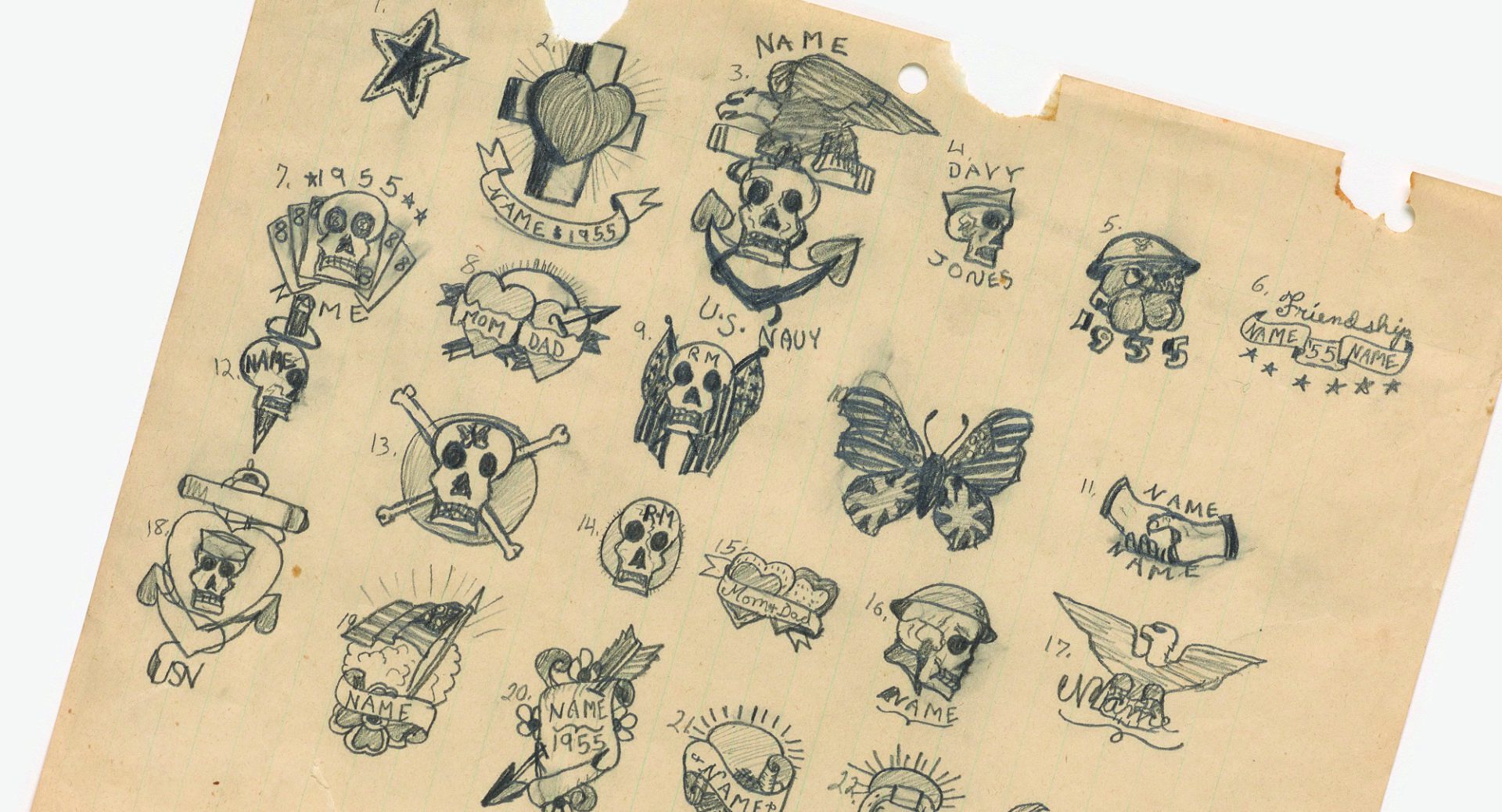
Hardy haunted the tattoo parlors on Long Beach Pike,
where he learned to draw tattoo designs for his “kiddie tattoo shop.”
In 1966, while getting one of his first tattoos from the legendary Phil Sparrow in Oakland, Hardy was introduced to a book on Japanese tattooing, which reignited his love for the medium and inspired his future career. Turning down a graduate fellowship in fine arts from Yale University, Hardy instead decided to begin tattooing professionally. At a time when those who had tattoos were disparaged, Hardy’s goal was to revolutionize the practice as an important artistic medium. Since then, Hardy has become one of the most important tattooers of the 20th century, popularizing the fringe medium by integrating historical styles of art and tattoo from all over the world, and expanding the boundaries of what art, in all its forms, can be.
“Ed Hardy reinvented the very nature of the tattoo inspired in large part by his early exposure to the masterworks in our collection,” says Thomas P. Campbell, Director and CEO of the Fine Arts Museums of San Francisco. “His impact has transformed the tattoo industry and we are delighted to provide the opportunity for wider audiences to explore his tremendous achievement both on and off the body.”
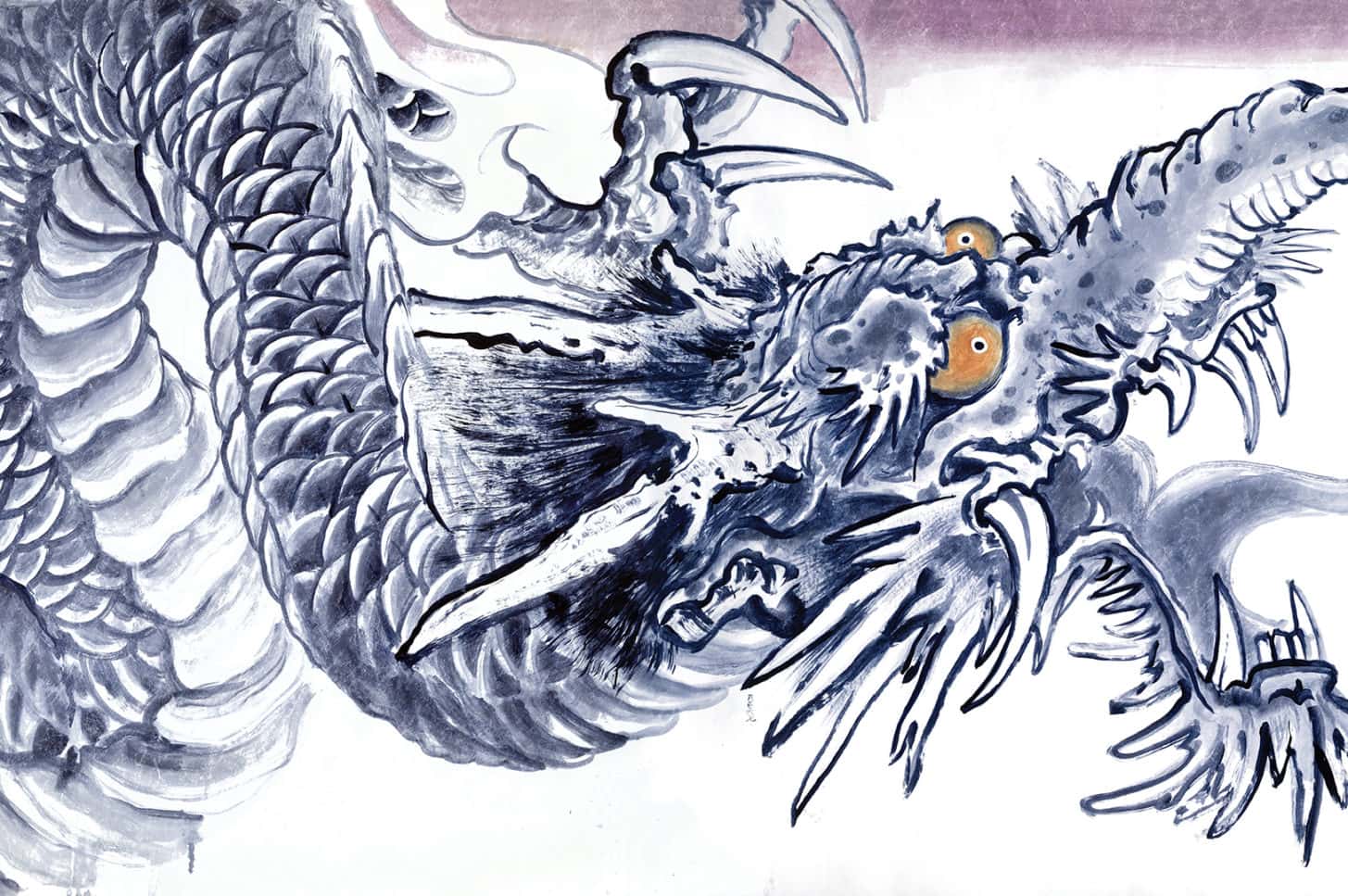
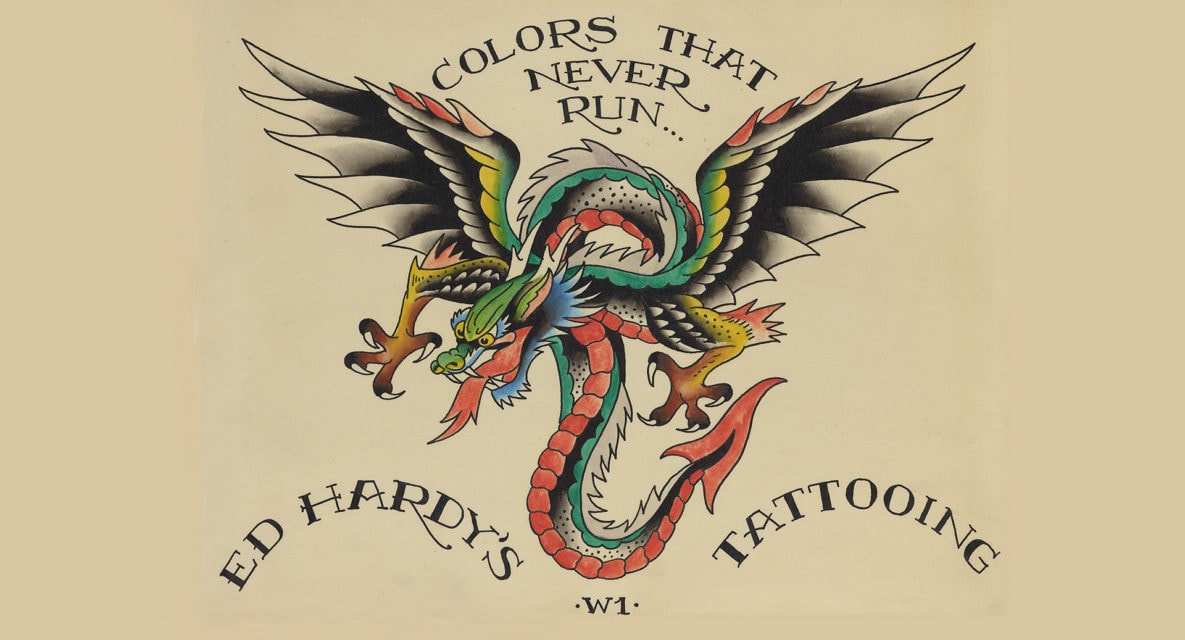
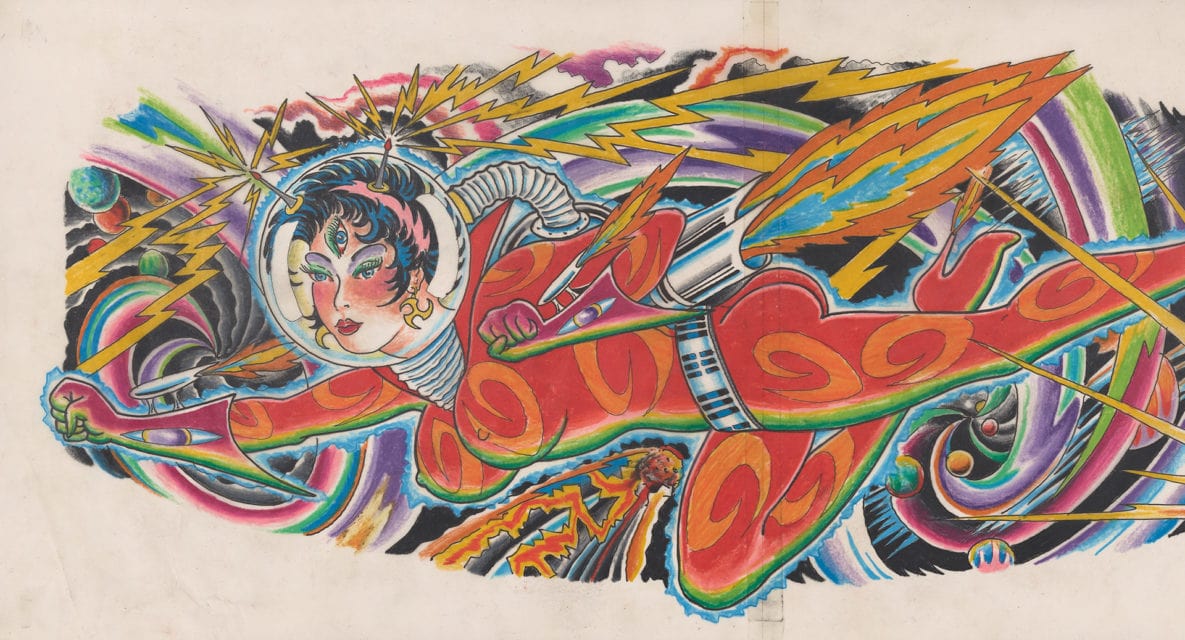
In 2017, to honor the Achenbach’s holdings and the impact that it had on his work, Ed Hardy donated to the Fine Arts Museums one impression of almost every print he ever made, a combined 152 in total. Ed Hardy: Deeper than Skin will feature around 40 of these prints, in addition to paintings, drawings, and three-dimensional works from the artist’s personal collection.
Key objects on view will include Hardy’s monumental 2000 Dragons, a 500-foot-long scroll on which he painted 2,000 dragons. Hardy conceived the idea in 1976, waiting 24 years to bring the piece to fruition to honor the millennial year 2000, as well as the Year of the Dragon in the Chinese zodiac. Other key objects will include a series of large-scale works called Eyecons, made in collaboration with Trillium Graphics in Brisbane, California. Eyecons feature Hardy’s iconic imagery on three-dimensional objects including disks, panels, and even boogie boards—a nod to Hardy’s childhood growing up in Southern California.
Viewers can also expect to see prints that Hardy created as a student at SFAI, juxtaposed with the master prints from the Achenbach that inspired them, as well as tattoo flash (sample tattoo designs), preparatory drawings, and paintings that showcase the themes of Hardy’s tattoo imagery integrating with his fine art practice.
“While Ed is widely known as an iconic tattoo artist, we’re excited that visitors will see another side of him and become more familiar with works from his own artistic practice,” says Karin Breuer, curator in charge of the Achenbach. “Since retiring from active tattooing in 2008, he’s created a significant body of art in a range of styles and imagery, each piece incorporating elements of conventional tattooing with traditional fine art.”
Ed Hardy: Deeper than Skin is organized by Karin Breuer, curator in charge of the Achenbach Foundation for Graphic Arts at the Fine Arts Museums of San Francisco. The exhibition will be on view at the de Young museum starting July 13, 2019. For more information, visit famsf.org.
Brentwood Home Is Fun for Kids and Parents Alike
Abby and David Kohl’s home is inviting, relaxed and playful. The décor is chic but never too precious for the couple’s four active children—and the dog.
There Are More Reasons to Enjoy Sonoma Other Than Just the Wine
3 Days in Sonoma … go!
Get the Latest Stories




